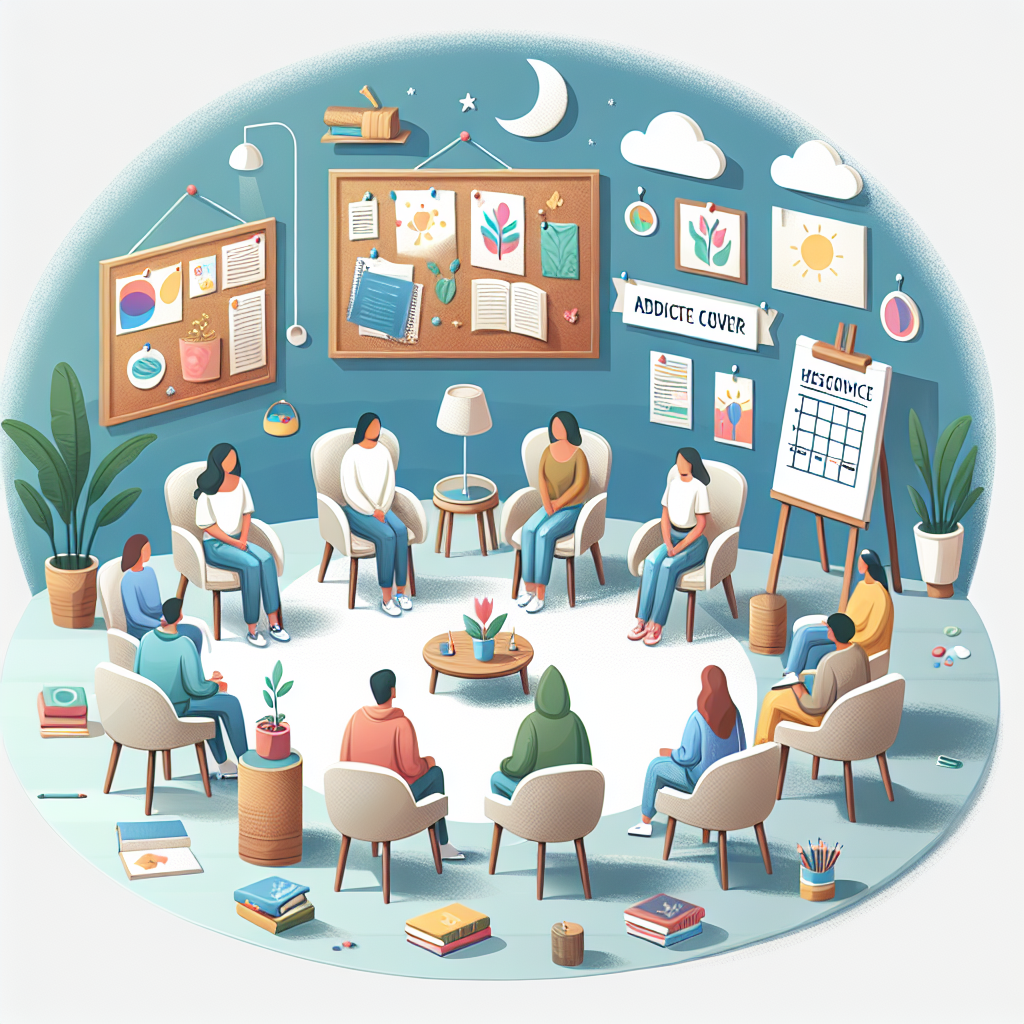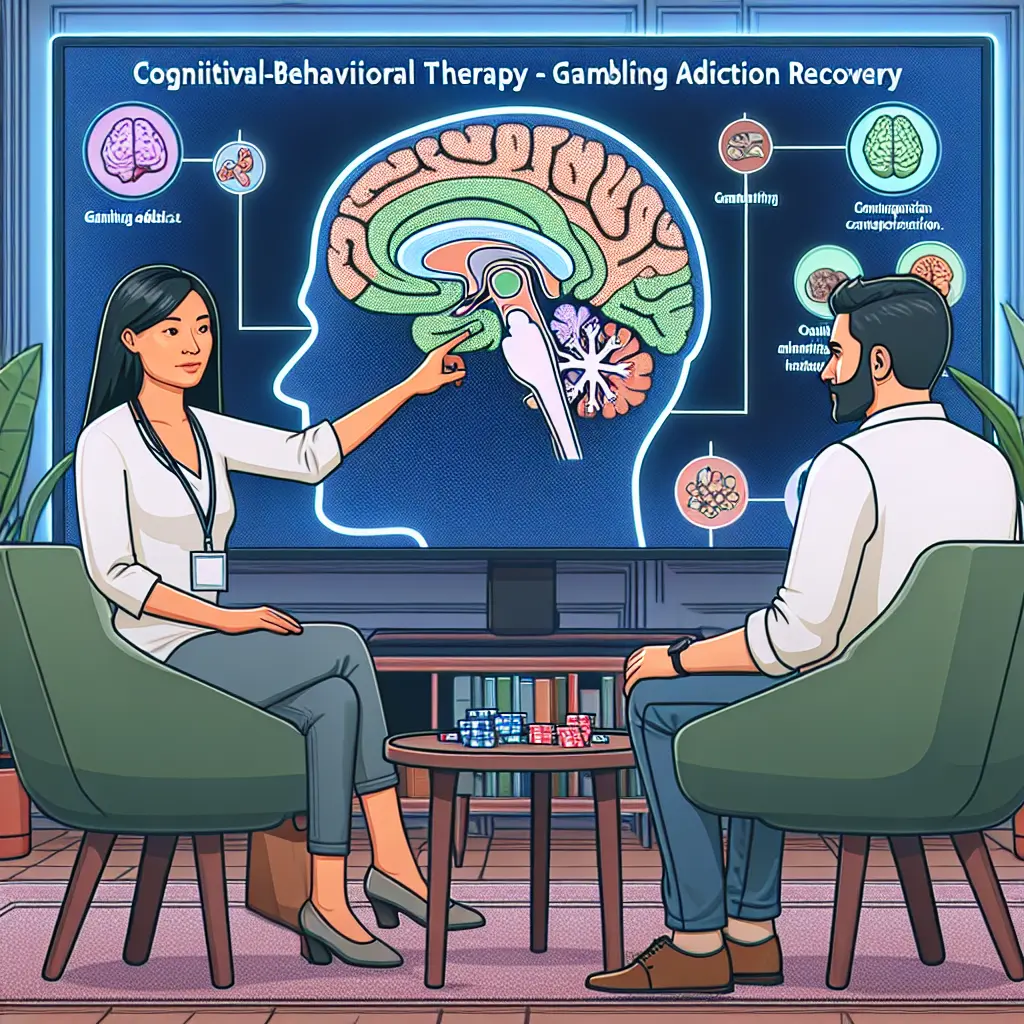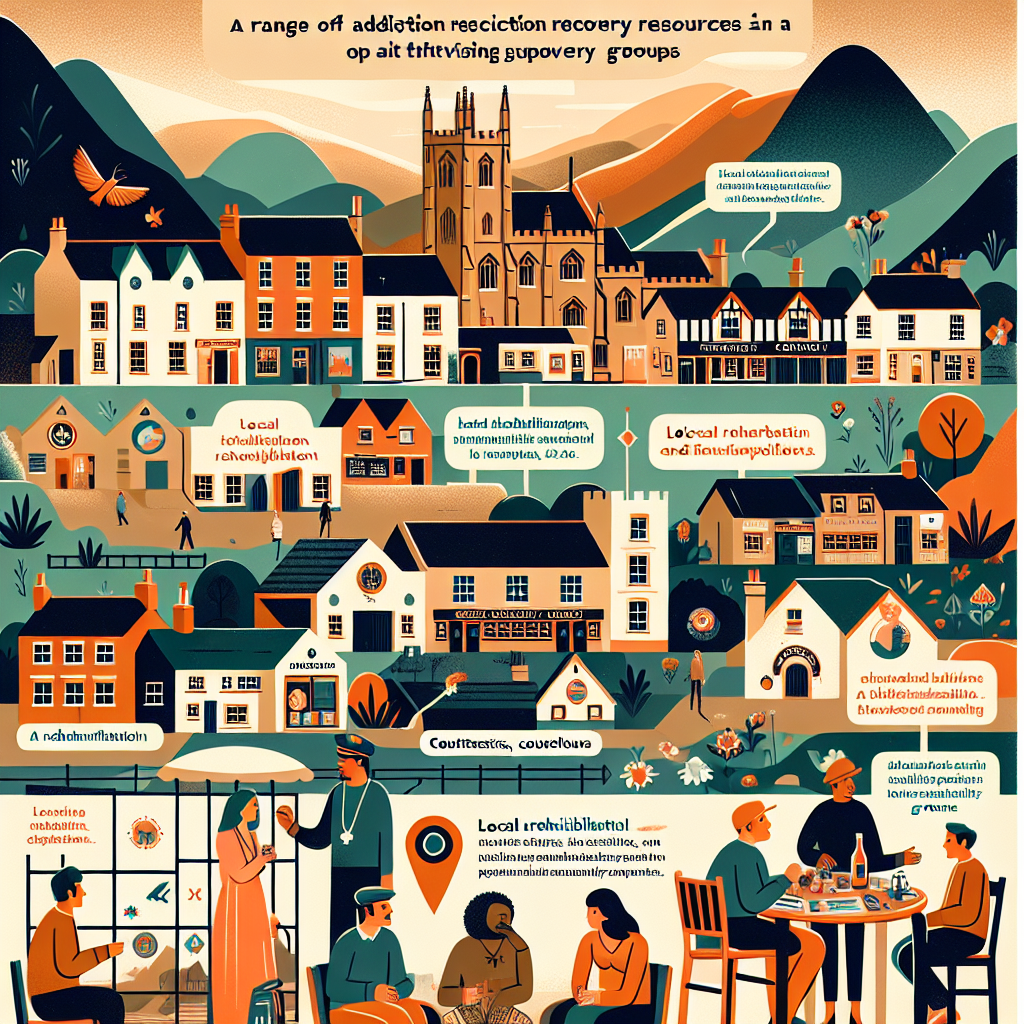-
Table of Contents

“Breaking Free: Comprehensive Recovery Services for All Addictions”
Introduction
Yes, there are addiction recovery services for non-substance addictions. Non-substance addictions, also known as behavioral addictions, include compulsive behaviors such as gambling, internet use, gaming, shopping, and eating disorders. These addictions can be just as debilitating as substance addictions, affecting an individual’s mental health, relationships, and overall quality of life. Recovery services for non-substance addictions often include therapy, support groups, and sometimes medication to address underlying mental health issues. Cognitive-behavioral therapy (CBT), in particular, is commonly used to help individuals recognize and change harmful behavior patterns. Additionally, many recovery programs offer holistic approaches, such as mindfulness and stress management techniques, to support long-term recovery and well-being.
Exploring Addiction Recovery Services for Behavioral Addictions
In recent years, the understanding of addiction has expanded beyond the realm of substance abuse to include behavioral addictions, such as gambling, internet use, shopping, and even exercise. These non-substance addictions can be just as debilitating as their chemical counterparts, leading to significant distress and impairment in an individual’s life. Fortunately, addiction recovery services have evolved to address these behavioral addictions, offering hope and healing to those affected.
Behavioral addictions share many similarities with substance addictions, including the compulsive engagement in a behavior despite negative consequences, the inability to control the behavior, and the experience of withdrawal symptoms when the behavior is not performed. Recognizing these parallels, many addiction recovery services have adapted their approaches to cater to individuals struggling with non-substance addictions. This adaptation is crucial, as it acknowledges the complex nature of addiction and the need for specialized treatment plans.
One of the most effective approaches to treating behavioral addictions is cognitive-behavioral therapy (CBT). CBT helps individuals identify and change the thought patterns and behaviors that contribute to their addiction. By addressing the underlying cognitive processes, individuals can develop healthier coping mechanisms and reduce their reliance on addictive behaviors. Additionally, CBT often includes strategies for managing triggers and preventing relapse, which are essential components of long-term recovery.
Another valuable resource for those struggling with behavioral addictions is support groups. Modeled after the success of Alcoholics Anonymous (AA), groups like Gamblers Anonymous (GA) and Internet & Tech Addiction Anonymous (ITAA) provide a supportive community where individuals can share their experiences, gain insights, and receive encouragement from others who understand their struggles. These groups often follow a 12-step program, which emphasizes personal responsibility, spiritual growth, and mutual support. The sense of belonging and accountability found in these groups can be a powerful motivator for individuals on their recovery journey.
In addition to traditional therapy and support groups, many addiction recovery services now incorporate holistic approaches to treatment. These may include mindfulness practices, such as meditation and yoga, which can help individuals develop greater self-awareness and emotional regulation. Engaging in creative activities, like art or music therapy, can also provide a healthy outlet for emotions and reduce the urge to engage in addictive behaviors. By addressing the mind, body, and spirit, holistic approaches offer a comprehensive path to recovery.
Moreover, the advent of technology has opened new avenues for addiction recovery services. Online therapy platforms and mobile apps provide accessible and convenient options for individuals seeking help. These digital tools can offer personalized treatment plans, track progress, and connect users with therapists and support groups. For those who may feel stigmatized or isolated, online resources can be a lifeline, providing anonymity and flexibility in accessing care.
It is important to recognize that recovery from behavioral addictions is a journey that requires time, effort, and support. While the path may be challenging, the availability of diverse addiction recovery services ensures that individuals have the resources they need to overcome their struggles. By seeking help and committing to the process, those affected by behavioral addictions can reclaim their lives and build a future filled with hope and possibility.
In conclusion, the expansion of addiction recovery services to include non-substance addictions reflects a growing awareness of the multifaceted nature of addiction. Through cognitive-behavioral therapy, support groups, holistic approaches, and digital tools, individuals struggling with behavioral addictions have access to a wide range of resources designed to support their recovery. With determination and the right support, it is possible to break free from the grip of addiction and embark on a journey toward a healthier, more fulfilling life.
Non-Substance Addiction Recovery: Available Services and Support
In recent years, the understanding of addiction has expanded beyond the realm of substance abuse to include non-substance addictions, such as gambling, internet use, shopping, and even exercise. These behavioral addictions can be just as debilitating as those involving drugs or alcohol, affecting an individual’s mental health, relationships, and overall quality of life. Fortunately, there are numerous recovery services available to help individuals struggling with non-substance addictions, offering hope and a path to a healthier, more balanced life.
One of the primary resources for those seeking help with non-substance addictions is therapy. Cognitive-behavioral therapy (CBT) has proven particularly effective in treating behavioral addictions. CBT helps individuals identify and change the thought patterns and behaviors that contribute to their addiction. By working with a trained therapist, individuals can develop coping strategies and learn to manage their impulses in healthier ways. Additionally, other therapeutic approaches, such as dialectical behavior therapy (DBT) and motivational interviewing, can also be beneficial in addressing the underlying issues that drive addictive behaviors.
Support groups play a crucial role in the recovery process for non-substance addictions. Organizations like Gamblers Anonymous, Debtors Anonymous, and Internet & Tech Addiction Anonymous provide a supportive community where individuals can share their experiences, gain insights from others who have faced similar challenges, and receive encouragement. These groups often follow a 12-step model, which has been adapted from the Alcoholics Anonymous framework, emphasizing personal responsibility, spiritual growth, and mutual support. The sense of belonging and understanding found in these groups can be incredibly empowering, helping individuals feel less isolated in their struggles.
In addition to therapy and support groups, many individuals benefit from holistic approaches to recovery. Practices such as mindfulness meditation, yoga, and acupuncture can help reduce stress and promote emotional well-being. These techniques can be particularly useful in managing the anxiety and depression that often accompany non-substance addictions. By incorporating these practices into their daily routines, individuals can develop a greater sense of self-awareness and emotional regulation, which are essential components of long-term recovery.
For those who require more intensive support, residential treatment programs offer a structured environment where individuals can focus on their recovery without the distractions and triggers of everyday life. These programs typically provide a combination of therapy, support groups, and holistic treatments, along with educational workshops and recreational activities. The immersive nature of residential treatment allows individuals to fully engage in the recovery process and build a solid foundation for lasting change.
Technology has also opened new avenues for addiction recovery. Online therapy platforms and virtual support groups make it easier for individuals to access help from the comfort of their own homes. These digital resources can be particularly valuable for those who live in remote areas or have limited access to in-person services. Additionally, mobile apps designed to support recovery can provide daily reminders, track progress, and offer instant access to coping tools and resources.
Ultimately, the journey to recovery from non-substance addictions is deeply personal and unique to each individual. While the path may be challenging, the availability of diverse recovery services and support systems offers a beacon of hope. By seeking help and embracing the resources available, individuals can overcome their addictions and reclaim their lives, moving forward with renewed strength and resilience. The road to recovery is not a solitary one; it is paved with the support, understanding, and encouragement of a compassionate community dedicated to helping each person achieve their fullest potential.
Q&A
1. **Question:** Are there addiction recovery services available for gambling addiction?
**Answer:** Yes, there are addiction recovery services specifically designed for gambling addiction, including counseling, support groups like Gamblers Anonymous, and specialized treatment programs.
2. **Question:** Can people with internet or gaming addiction find professional help?
**Answer:** Yes, individuals with internet or gaming addiction can find professional help through therapy, support groups, and specialized treatment centers that focus on behavioral addictions.
Conclusion
Yes, there are addiction recovery services for non-substance addictions. These services often include therapy, support groups, and specialized treatment programs designed to address behavioral addictions such as gambling, internet use, gaming, and shopping. Treatment approaches may involve cognitive-behavioral therapy (CBT), motivational interviewing, and other evidence-based practices to help individuals manage their behaviors and develop healthier coping mechanisms.



